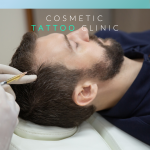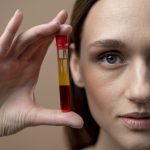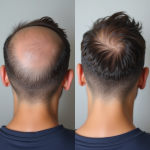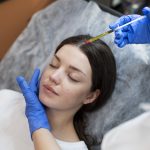Millions of individuals worldwide suffer from hair loss, including that famous guy in his red and white-trimmed suit. Without his characteristic red bobbled cap, it’s plain to see he has hair thinning or balding problems. Understanding the various forms and potential causes and being knowledgeable about the available treatments is all-important. In recent times, an innovative therapy approach that has become increasingly popular is PRP Injection Treatments. This in-depth guide covers the different kinds of hair loss, how PRP therapy works and its benefits. It will also reveal the types of people who can benefit from it and the specific aftercare.

Understanding Hair Loss
Types of Hair Loss
There are several categories into which hair loss can fall:
- Androgenetic alopecia: the most common form of hair loss, characterised by gradual thinning and receding hairlines.
- Telogen effluvium: a temporary hair loss due to stress, shock, or sudden hormone changes in the body.
- Alopecia areata: an autoimmune disorder causing patchy hair loss on the scalp.
- Other less common types (e.g., traction alopecia) include excessive tension on the hair follicles, often resulting from tight hairstyles.
Causes of Hair Loss

Various factors contribute to hair loss, such as:
- Genetic factors: Family history plays a significant role in determining the likelihood of developing baldness.
- Hormonal changes: Imbalances in hormones like testosterone and oestrogen can lead to hair thinning.
- Medical conditions: Issues such as thyroid and autoimmune diseases like lupus can cause alopecia.
- Environmental factors: Stress, diet, and pollution can also contribute to female or male-pattern baldness.
Definition of PRP injection Treatments
PRP therapy involves using the body’s own platelets to stimulate hair growth. Platelets are rich in growth factors, which play a crucial role in the healing and regeneration of tissues. During the PRP procedure, a small amount of blood is drawn from the patient, and the platelets are then separated and concentrated to create PRP.
The PRP Treatment Process
Initial Consultation

Before undergoing PRP therapy, consult with a qualified Cosmetic Makeup Specialist. This consultation will involve a thorough medical history review and a scalp examination to determine the type and extent of hair loss. Setting realistic expectations is also crucial for achieving the best possible results.
The Procedure

The PRP extraction process begins with drawing a small amount of blood from the patient. The blood is then processed to separate and concentrate the platelets. The PRP solution is then carefully injected into the scalp, targeting areas affected by hair loss. The procedure usually takes approximately 1-2 hours, and most patients report minimal discomfort during the injections.
Aftercare

After the PRP treatment, patients are advised to follow specific aftercare instructions, including avoiding strenuous activities and washing the hair gently. Some mild side effects, such as swelling, bruising, or soreness, may occur but generally subside within a few days. Most patients can return to their normal routines immediately after the procedure.
Benefits of PRP Injection Treatments for Hair Loss

- Natural and Minimally Invasive: PRP therapy offers a natural, minimally invasive approach to hair loss treatment. Unlike medications or surgeries, PRP uses the patient’s own blood components, reducing the risk of adverse reactions and side effects. Additionally, PRP treatments can be customised to suit individual needs and hair loss severity.
- Stimulates Natural Hair Growth: Numerous studies, especially regarding female pattern hair loss (FPHL), have demonstrated the effectiveness of PRP in stimulating natural hair growth. The growth factors in PRP help revitalise dormant hair follicles, leading to thicker, denser hair. PRP can also help improve the appearance of thinning hair and restore hair density.
- Long-lasting Results: The results of PRP therapy for hair loss can be long-lasting, with many patients experiencing noticeable improvements within 3-6 months after the first treatment. However, individual results may vary, and maintenance treatments may be necessary to maintain optimal hair growth. Most hair restoration specialists recommend 3-4 treatments, spaced 4-6 weeks apart, followed by maintenance sessions every 6-12 months.
Who is a Good Candidate for PRP Injection Treatments?
PRP therapy is generally suitable for individuals experiencing various types of hair loss, particularly those with androgenetic alopecia or early-stage hair loss. The ideal candidate should be in excellent overall health, have realistic expectations, and be committed to following post-treatment care instructions.
While PRP therapy is considered safe, there are some limitations and contraindications to consider. Patients with certain medical conditions, such as bleeding disorders or infections, may not be suitable candidates for PRP injection treatments. Additionally, PRP may not be effective for individuals with advanced hair loss or those with certain types of alopecia.
PRP Injection Treatments: A Natural Solution for Hair Loss
PRP injection treatments for hair loss offer a promising, natural, and minimally invasive approach to addressing hair loss concerns. It has shown significant potential in promoting hair growth and improving hair density.
If you or someone you know is concerned about hair loss, book a consultation with Cara to learn more about PRP injection treatments, their cost, and whether this innovative therapy is right for you.
